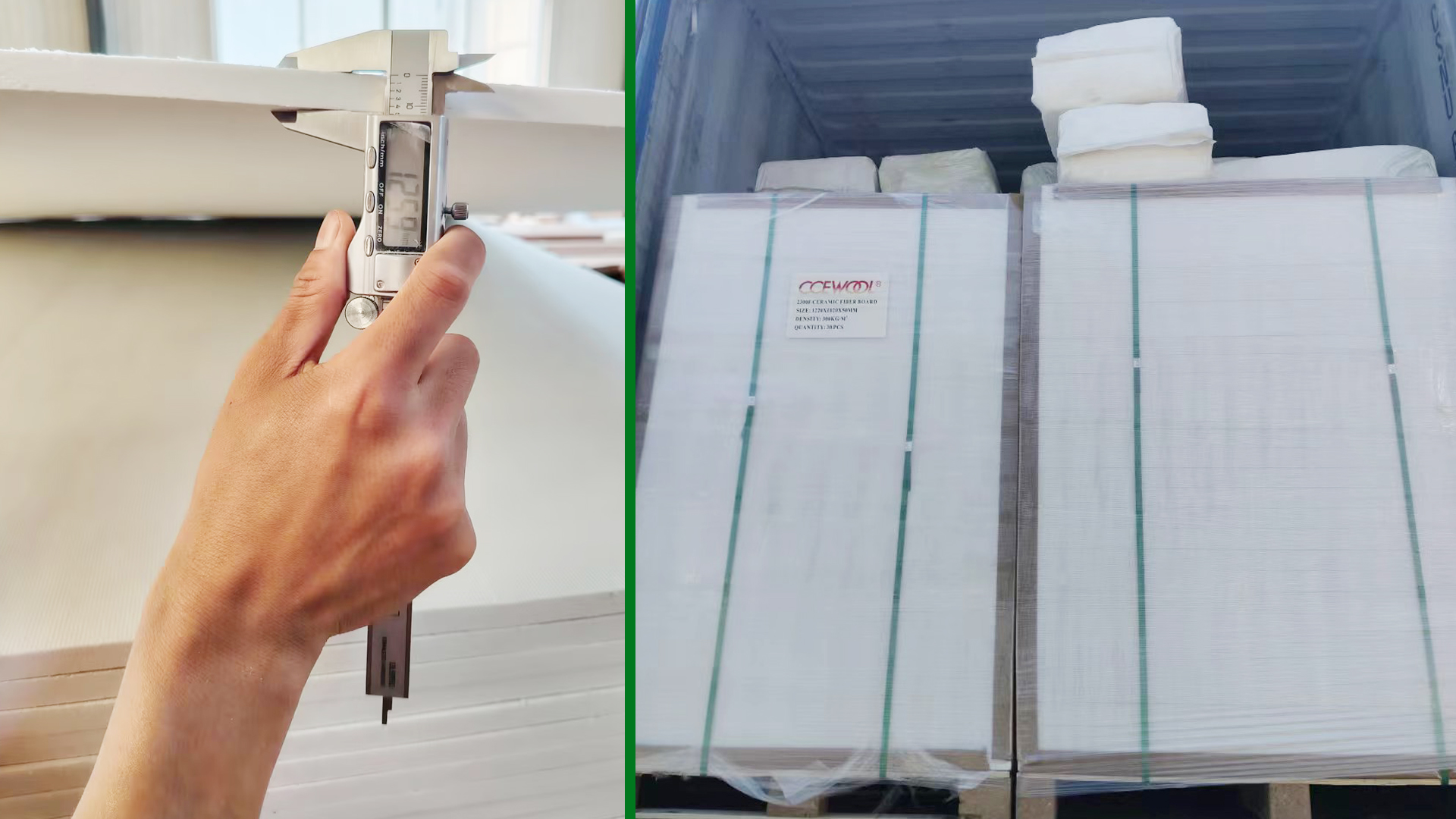Ceramic Fiber Insulation Board – CCEWOOL®
- 10 Mar, 2025
- Insight

In high-temperature insulation materials, compressive strength is a key factor in determining durability and stability. A high compressive strength material effectively resists external forces, maintains its shape and function, ensures long-term thermal insulation performance, reduces damage and safety risks, and extends service life. CCEWOOL® utilizes advanced production techniques to manufacture high-performance Ceramic Fiber Insulation Board, meeting the demands of even the most challenging industrial applications.
Advanced Technology for Enhanced Compressive Strength
- Wet Process for Uniform Fiber Distribution
CCEWOOL® Ceramic Fiber Insulation Board is manufactured using the wet process, ensuring even fiber distribution within the board. This enhances its structural stability and improves overall compressive performance. - High-Efficiency Drying System for Rapid Curing and Strength Enhancement
The compressive strength of insulation boards largely depends on the uniformity of the drying process. CCEWOOL® employs a fully automated production line and an advanced drying system, achieving deep and even drying within just 2 hours. This ensures complete moisture removal, allowing the product to maintain high strength and stability even in extreme temperature conditions. - Outstanding Compressive Strength for Maximum Durability
With optimized production technology, CCEWOOL® Ceramic Fiber Insulation Board achieves a compressive strength exceeding 0.3Mpa. Even in high-temperature, high-pressure, or harsh environments, it retains exceptional durability and stability, providing customers with a long-term and reliable insulation solution.
U.S. Customer
Cooperation Years: 2 years
Ordered Product: CCEWOOL® Ceramic Fiber Insulation Board
Product Size: 12.5x1000x1200mm
We recently supplied a batch of Ceramic Fiber Insulation Boards to a U.S. customer, with specifications of 12.5x1000x1200mm. The customer highly praised CCEWOOL® Ceramic Fiber Insulation Board for its high compressive strength, stable insulation performance, and outstanding durability. They particularly appreciated the fast drying process and precise manufacturing, which significantly improved installation efficiency and reduced maintenance costs. The customer looks forward to continued collaboration with CCEWOOL® to advance high-temperature insulation solutions.



